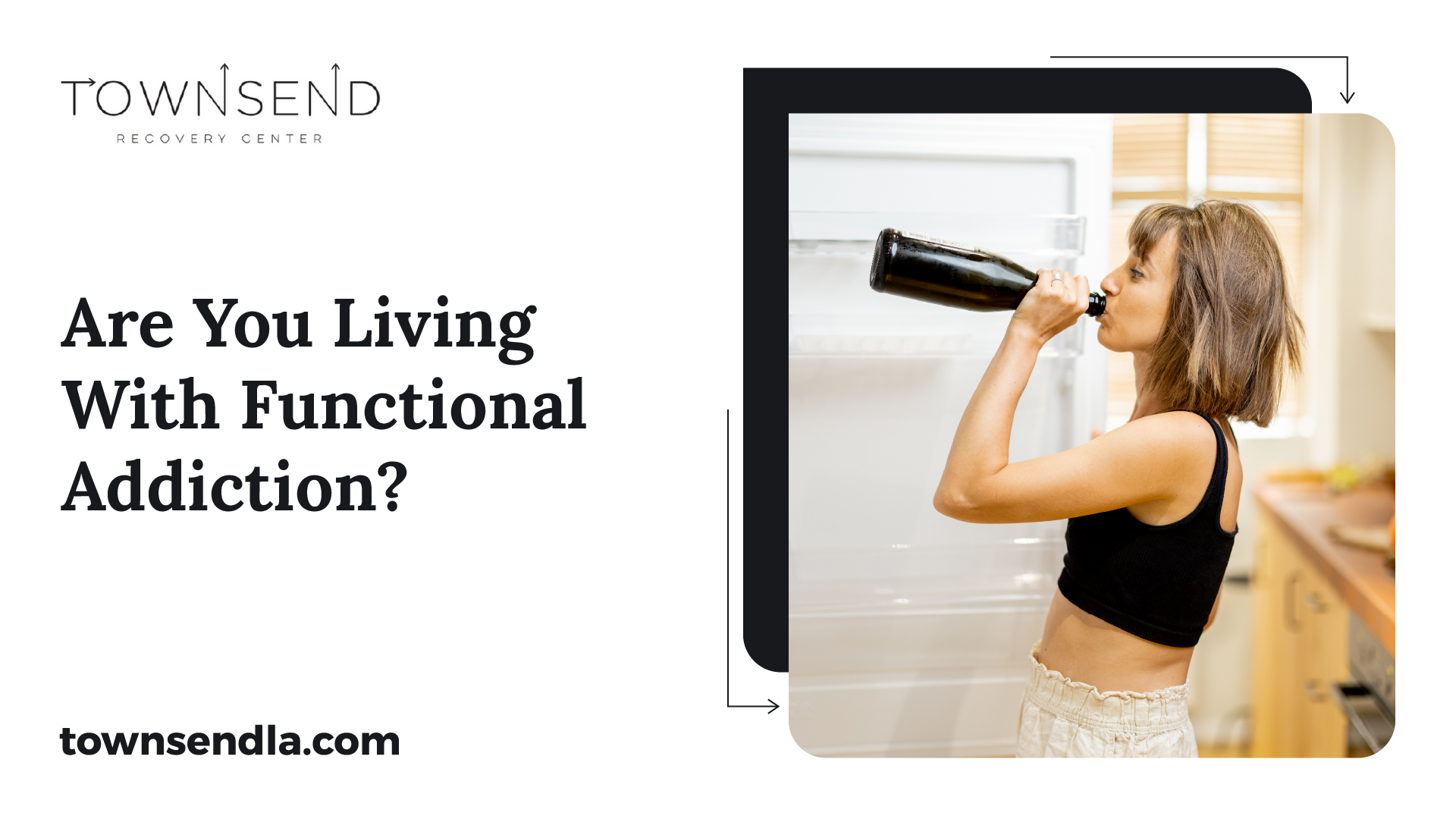
You make it to work every day. You are married or in a relationship. You have kids and/or close friends that you spend time with. You may be paying your bills, going on vacation, and keeping on social media with the best of them.
But behind the scenes, the story begins to fall apart. Maybe you are taking prescription painkillers by the palmful to manage chronic pain. Maybe you hide a bottle of vodka in your car and in your desk, with the goal of managing stress. Maybe you take stimulant drugs – cocaine, crystal meth, or prescription stimulants – in an effort to stay on top of a hefty to-do list.
Whatever your reasoning, you may view your use of substances as a necessity or as a harmless vice that keeps you going. But on some level, you may recognize all that you have to do to cover up your use of these substances and how frequently using them – or not using them – negatively impacts your ability to function. If this describes your situation, you may be living with functional addiction.
Addiction is a Holistic Disorder
Use of drugs or alcohol is not the essence of addiction. Rather, it is a symptom of the problem – one that occurs on the surface and indicates a serious underlying disorder that can manifest in a number of different ways.
Gambling, shopping, sex and love, work, technology use – there are a number of different behaviors that may become compulsive and frequent with a number of negative consequences.
Though it may appear to most people that you are holding everything together, you and those who are closest to you may see that things are balancing on a thread.
When things begin to unravel due to addiction, the consequences can strike your:
- Physical health
- Work life
- Home life
- Relationships in general
- Emotional health
- Mental stability
Many begin to experience anxiety that people will find out about the addiction disorder and become paranoid about any questions about their personal choices.
Many experience extreme mood swings, erratic outbursts, and behaviors that threaten their employability as well as their long-term friendships and romantic relationships. Even if you believe that others do not know about the problem, they are experiencing its repercussions, just as you are.
Surviving, Not Thriving
Though you may feel that you are making things work and holding your life together in spite of addiction, the fact is that you are barely holding on.
The people around you are noticing the changes, and it will begin to negatively impact your life in larger and larger ways. Effects can start small and gradually grow larger – your relationships may not be as strong as they could be, you may miss out on opportunities for advancement at work, your health issues could begin to grow or linger longer than they should – and though you may feel like addiction is not the cause, it always makes things harder than they have to be.
When an addiction disorder goes untreated, even if you are managing to get along from day to day, you are not living the life you deserve. Your energy is lower than it has to be, you are more prone to mental health issues like depression and anxiety, and depending upon how addiction manifests in your life, you will begin to experience financial difficulties, physical health problems, and/or interpersonal issues as well.
“Functional” is just a matter of perspective. The truth is that you are in crisis if you are living with addiction.
Addiction Disorder Treatment
For many people, heavy use of substances co-occurs with other signs of an addiction disorder. For example, gambling and drinking alcohol or working and using stimulant drugs are common combinations. These symptoms can become intertwined as a result. For example, someone may get the urge to drink while gambling or feel unable to get up in the morning to go to work without use of stimulants.
Because addiction impacts a person on many different levels, treatment must be able to speak to all the consequences and changes that resulted from all addiction behaviors. Thus, if there are multiple manifestations of addiction in a person’s life, it is essential that they seek treatment at a rehab program that has the resources to address all issues at the same time.
What do you need to treat addiction? An individualized treatment plan that will meet your needs and addresses all the issues you are experiencing due to addiction. This occurs when you have access to:
- A thorough evaluation and assessment process at the start of treatment with the goal to identify all the potential obstacles to recovery that you face
- A treatment plan that includes a variety of therapeutic options, ranging from the traditional to the alternative to the holistic and specified treatment goals
- A regular check-in meeting with a case manager or therapist as you navigate treatment to ensure you are meeting treatment goals
- Support and education opportunities for family members
- Long-term follow-up support and care after completion of the rehab program
What do you need to begin the healing process? Contact Townsend today to learn more about our unique approach to addiction treatment and how we can help you to start your journey in recovery now.

.svg)
.svg)


